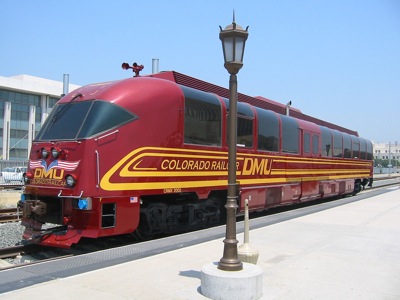My guess is that this will never see the light of day in the Columbian, so I'm sticking it up here as yet another example of the organized crime that is loot rail.
posted in Transportation, Urban areas
Portland’s Westside commuter rail is $33 million over its planned budget of $133. Although just $8 million of that is due to the cost of the commuter rail cars, a recent article in The Oregonian blames the manufacturer of those cars for having “cost TriMet millions.”
The Westside commuter rail line goes from nowhere to nowhere. Actually, it goes from Wilsonville to Beaverton, but neither endpoint is a major job center. That means commuters who use the commuter rail will probably change in Beaverton to a light rail train. Faithful Antiplanner ally John Charles says this line is a loser. It is so bad that Oregon’s congressional delegation had to pass a law exempting it from Federal Transit Administration cost-effectiveness criteria restricting funding to projects that only waste a lot of money instead of a whole lot of money.
Colorado Railcar’s original demonstrator unit.

Flickr photo by AaverageJoe.
Engineering, design, construction, right of way, and signals for the project cost about $22 million more than expected, which The Oregonian mentions only in a tiny chart. Instead, the story focuses on Colorado Railcar, a company that has been promoting the idea of Diesel multiple units (DMUs), which more or less means a light-rail-like car powered by a Diesel engine powerful enough to also tow one or two unpowered cars.
I’ve never met Tom Rader, the owner of Colorado Railcar, but as a railfan I’ve known some of his associates and products. Under the name Rader Railcar, he rebuilt old passenger cars into some interesting cars for various tourist rail lines in Alaska, Canada, and elsewhere. Some of these cars were great, but others were late and overbudget, leading to financial problems for both his customers and his own company.
Due to these problems, Rader was forced to reincorporate under a different name. He then decided to jump into the transit business and actively promoted Diesel commuter cars as a cross between conventional commuter rail (which typically operates only during rush hours) and light rail (which operates all day long but in shorter trains than commuter rail).
No comments:
Post a Comment